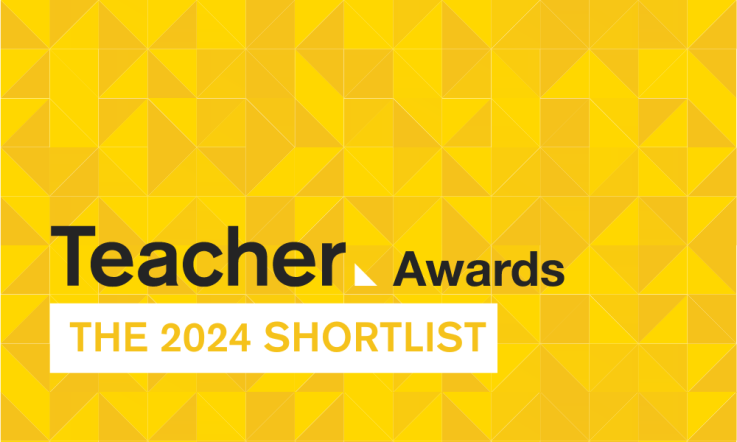This year marks the 10th birthday of Teacher magazine online, and to celebrate we’re looking back at some of the highlights, the topics that have been most important to you, and exploring the publication’s impact. Today’s article explores a decade of columnist contributions, including some of their own favourites.
Over the years we’ve published 100 columnist pieces, starting with a piece on the ineffectiveness of incentives as a school improvement strategy by Professor Geoff Masters AO, in October 2014. Reflecting on his 51 columnist contributions during his time as ACER CEO, Professor Masters says: ‘Although I’ve written a number of articles for Teacher over the past 10 years, perhaps my favourite was my 2015 article ‘Big five’ challenges in school education.
‘I’ve chosen this firstly because it is one of my most widely read articles and secondly because it spawned a number of other Teacher articles, reports and webinars.
‘In this initial article, I identified what I saw as 5 significant challenges facing Australian school education at that time. These were the challenges of raising the professional status of teaching; reducing disparities between Australian schools; designing a 21st century curriculum; promoting flexible learning arrangements focused on growth; and identifying and meeting the needs of children on trajectories of low achievement. Over the following 7 months, I elaborated on these 5 challenges, writing a Teacher article on each.
‘Having written these 6 articles, I then brought them together in a 2016 issue of Policy Insights titled ‘Five Challenges in Australian School Education’ which has been downloaded 26,707 times. Six years later, in 2021, I wrote a short article for Teacher titled ‘Big five’ challenges in school education – what progress have we made? and announced a series of 5 webinars to be delivered by ACER researchers, one on each challenge.
‘In these ways, Teacher gave me an opportunity to identify and elaborate on some important challenges in Australian school education. The resulting articles and webinars have been widely read and watched. I greatly appreciated the encouragement and support of Jo Earp and the Teacher team in helping me to prepare and publish these articles over the past decade.’
It’s been a pleasure to work with Professor Masters and share his expertise with the Teacher community on a whole range of topics, including assessment reform, equity, evidence-informed practice, student progress, and world-class learning systems. The ‘Big 5 challenges’ column in 2015 remains one of our most read articles on the Teacher website, clocking up more than 250,000 page views.
Julia Gillard is a passionate advocate for increased access to education. The 27th Prime Minister of Australia, former Chair of the Global Partnership for Education, and former Chair of Beyond Blue contributed 12 articles and a video during her 4 years as a Teacher columnist.
My favourite piece is a ‘A day in the life of a Malawian school girl’ – reflections from a trip to south-east Africa, which included a meeting with Tamara. Talking about how education has the power to transform lives, she writes: ‘When Tamara tells me her story, I feel deeply humbled. My own public education in Adelaide was a great one. It prepared me for a life of learning that would see me become a lawyer, a parliamentarian and eventually Prime Minister. How different my life would have been without it.
‘Now in her early 20s, Tamara sits before me as a confident, successful young woman. Her educational journey was transformed when she received a bursary from CAMFED – the Campaign for Female Education – which provided her with the financial help she needed to finish secondary school, as well as advice and counselling to succeed.
‘She now runs her own business selling fabrics and serves as the National Chairperson for CAMFED's alumnae network of young women change makers. Tamara is determined to support the next generation of Malawian girls to receive a great quality education, and I am determined to support her in these efforts.’
In a final contribution for Teacher, in 2020, Julia Gillard took the opportunity to thank educators in Australia for their extraordinary efforts and resilience in a special video for World Teachers’ Day.
Our columnist contributions have also analysed findings from large-scale surveys to explore what the research says about student achievement and wellbeing, and some of the challenges facing schools and educators. Former ACER Deputy CEO (Research) Dr Sue Thomson wrote 19 contributions for Teacher from 2018 to 2022, expertly distilling the data and sharing insights with our readers on the implications for educators and school systems. Her first column was ‘Students who like to read – what does the research say?’
In her ACER role, Dr Thomson managed Australia’s participation in the Trends in International Mathematics and Science Study (TIMSS), the Progress in International Reading Study (PIRLS) and the OECD Programme for International Student Assessment (PISA).
Reflecting on her time as a Teacher columnist, she says: ‘I think my article on ‘What does PISA tell us about Australia’s school sectors’ is my “favourite”. It addresses the issue of equity – although I did try and address this in different ways in every article – and the decline in Australia's PISA scores, which is always in the news at PISA time.’
Our latest columnist contribution – ‘Equity lessons for the AI era from PISA’ – is from Andreas Schleicher, who has been writing for Teacher since 2016. The OECD’s Director of Education and Skills has published 25 articles during that time and has enjoyed being able to connect with our readers.
‘Over the years, I’ve written many columns for Teacher magazine, and enjoyed every one,’ he reflects. ‘Teacher is an important outlet for the OECD to engage with educators around the world about the topics that really matter. But one column that particularly stands out is the one that I wrote on ‘Developing a lifelong learning mindset in students’.
‘I wrote this column in August of 2021. This was one year into the COVID-19 pandemic, at a time when global infections were still relatively low, though on the uptick. Infection rates would continue to rise more than fourfold over the next year, ultimately affecting more than a billion people in nearly every country. Many of these were students.
‘In the piece, I explored how the pandemic underscored the importance of lifelong learning attitudes and the interconnected roles of parents, teachers, and schools in students' socio-emotional development, highlighting the resilience and adaptability required in a digital society.
‘In the 3 years that have passed since I wrote the column, the pandemic’s worst effects have largely abated. At the same time, artificial intelligence has emerged as a technology that may prove to be far more disruptive to education in the long run than COVID-19.
‘Yet the prescriptions that I described to build resilience to COVID-19 through lifelong learning – supportive teacher practices, parental engagement, teacher-parent collaboration – remain no less relevant today. Technology has the potential to make education more effective, efficient and accessible but only under the right conditions. Creating the enabling environment to foster lifelong learning in students will help us to stimulate those values and practices in families, students and teachers, necessary to ensure that technology is a force for good in the classroom and beyond.’
Thank you to all of our expert columnists – it’s been wonderful to look back at this body of work, which has been an important part of Teacher’s journey.



